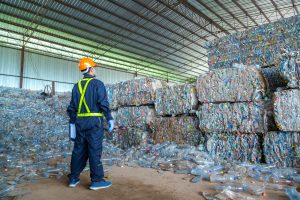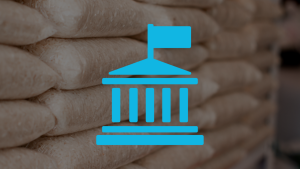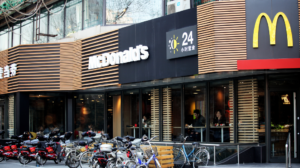Towards a circular plastics economy
Over the past few years, plastics management has become a growing concern for the Canadian population. With only 9% of plastic waste effectively recycled in our country, the vast majority of these materials end-up in landfills and a small fraction (1%), in the environment as litter.
Across Canada, initiatives are blooming and stakeholders are mobilizing around the need to find solutions, giving birth to a movement towards a circular plastics economy. Aimed at celebrating our efforts towards better environmental stewardship, Waste Reduction Week is a great occasion to remind ourselves of the challenges posed by plastics management, and of the opportunity that we commonly have to make this critical shift. Happy Plastics Thursday!
Such a transition requires that we move away from our traditional, linear “take-make-waste” model, towards one that optimizes the use of resources, keeps them in circulation and drives us to rethink growth and redesign how we manufacture our products and packaging. Within this systemic shift lie tremendous business, economic and innovation opportunities that can lead to crucial environmental and social benefits. The non-recovery of plastic waste alone represents a missed opportunity estimated in Canada at almost $8 billion2-, a sum that could be better used if a more circular management of plastics enabled the effective reuse of these resources.
Strengthening recycling capacities, systems and infrastructure is one effective and important building block of a circular plastics economy. It has become increasingly important over the past few years since the closure of Asian markets to the import of recyclable materials has turned the industry upside down. This recycling crisis has shed light on the urgency to modernize it and improve its performance, so high quality recycled materials can be produced and sold on dynamic local markets. Although chemical recycling has the potential to become a complementary approach to plastics management, these technologies are not yet scalable and widely available. Therefore, there is an urgent need to optimize the mechanical recycling system to ensure that plastics can be effectively sorted, captured and recycled, while supporting the advancement of innovation and technology.
Keurig Dr Pepper Canada, a partner of the Waste Reduction Week, is a company that truly believes in the amplifying impact of collective action and therefore, multiplies its efforts and support to collaborative projects aimed at supporting better systems and infrastructure. Since 2015, the company has committed $30 million USD in partnership initiatives encouraging the circular economy such as the American Beverage Associations’ Every Bottle Back initiative, the Closed Loop Fund and the Recycling Partnership’s Polypropylene Recycling Coalition. Keurig Dr Pepper Canada is also a co-founder of the Circular Plastics Taskforce, an initiative aimed at improving plastics recycling in Canada. Building a circular plastics economy demands a profound evolution of our mindsets and the mobilization of us all, and collaboration will be key if we want to achieve meaningful change leading to the elimination of plastic waste.
We also need to ensure that recycled plastics truly find a useful second life on viable end markets. The demand already exists in Canada, as many brand owners and producers have committed to integrating post-consumer recycled (PCR) plastic in their products and packaging. Keurig Dr Pepper Canada wants to contribute to driving this demand by increasing the use of PCR content and reducing that of virgin plastic as means to support the circular economy. This journey is not a simple one, as it can prove challenging to secure access to recycled resins in the volumes, grades and quality required – even more so if one tries to source it locally.
Keurig Dr Pepper has found a great partner in Lavergne, a global leader in plastic transformation. Headquartered in Montreal, Lavergne is on a mission to make plastic circular. The company is working alongside leading companies such as HP, Dyson and Cisco, to implement sustainable plastic ecosystems. Lavergne now collaborates with KDP in developing and supplying sustainably engineered resins to be used in KDP products, including in its first coffee maker partially made with PCR content. That coffee maker, the first of many more models to come, will launch in Canada and be recognized as a breakthrough for circular manufacturing. KDP and Lavergne are leading the consumer appliance industry and already looking ahead at the next big leap towards a circular economy: a complete closed-loop process, which consists of integrating recycled plastic coming from reclaimed coffee makers into new ones.
Successful recovery of plastics requires a healthy plastic recovery system. Thriving end markets, fed by quality recycled plastics coming from technologically advanced recovery facilities is needed to keep the entire system healthy. Keurig Dr Pepper and Lavergne believe that investment in each part of the recovery system, coupled with sustainable packaging design and informed customers, will result in a vibrant and thriving circular economy for plastics.



